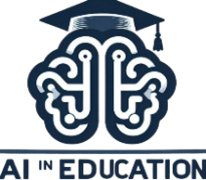Dr. Echessa A. C. Peter PhD in analytical chemistry. A high school teacher of chemistry and mathematics. Part time lecturer Masinde Muliro University of Science and Technology. Interested in the conversation on how e-learning and AI can motivate girls in STEM subjects and related careers.
Topic: The affordances, limitations and mitigations of e-learning and AI, stakeholder perceptions in promoting AEP and preparing the girl child for stem careers
Abstract
The integration of artificial intelligence (AI) and e-learning technologies offers transformative potential for addressing educational disparities, particularly for girls in Science, Technology, Engineering, and Mathematics (STEM) fields. This study investigates the affordances and limitations of these digital tools, assessing their role in providing alternative education pathways. It identifies socio-economic, cultural, and digital literacy barriers hindering access to AI and e-learning, especially for marginalized girls. The research further develops actionable strategies to mitigate these barriers, ensuring equitable access and impactful use of these technologies in underserved communities. Ethical considerations are examined, with a focus on data privacy, equity, and the responsibilities of policymakers to foster inclusive and fair digital education ecosystems. Additionally, the study delves into the ontological and epistemological dimensionsof digital tools, exploring how perceptions of these technologies influence knowledge construction and learning outcomes for girls in STEM. A catalog of digital tools and systems is provided, analyzing their origins, purposes, and creators to understand their design and application in education. The study employs a mixed-methods approach, combining qualitative and quantitative research methods to ensure a comprehensive analysis. Surveys and interviews with key stakeholders, including educators, policymakers, parents, and students, provide insights into barriers, ethical concerns, and perceptions of digital education tools. Additionally, secondary data analysis is conducted to examine the types of data generated by digital tools, uncover hidden biases, and assess their implications for decision-making and educational practices. By evaluating the data generated by these technologies, the study uncovers hidden biases and limitations that may impact educational practices and decision-making processes. Lastly, it assesses the axiological implications of deploying digital education tools, emphasizing ethical considerations and value-based approaches to promoting equity, access, and inclusivity for girls pursuing STEM careers. The findings aim to provide a comprehensive framework for leveraging AI and e-learning technologies in advancing STEM education for girls, addressing existing challenges, and shaping policies that support sustainable and inclusive educational development.


